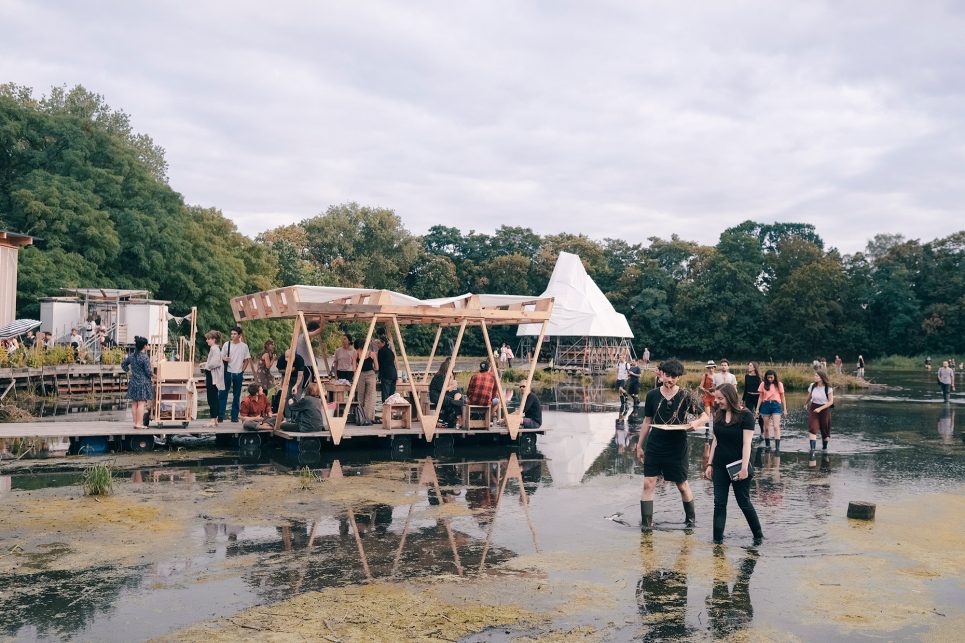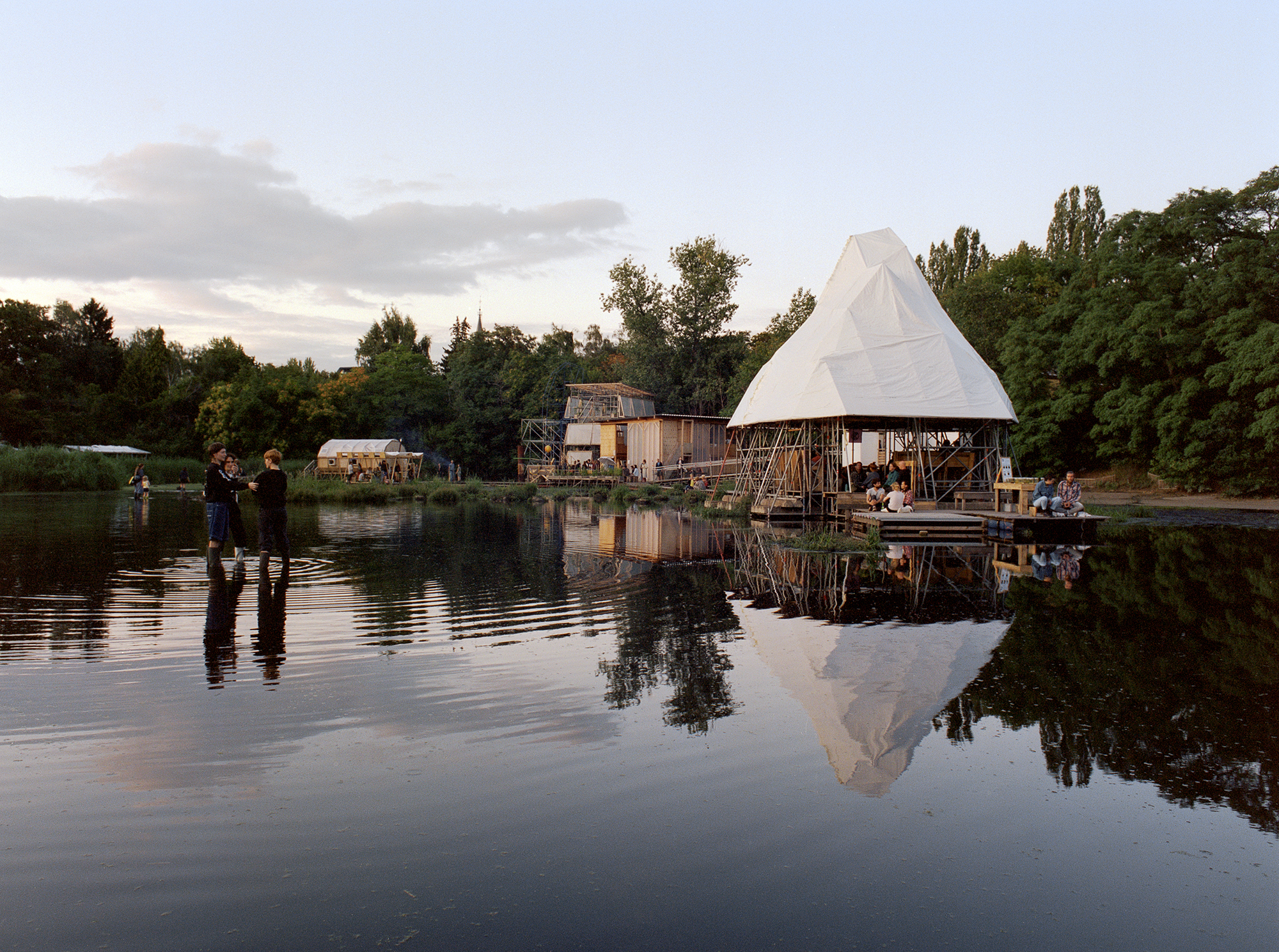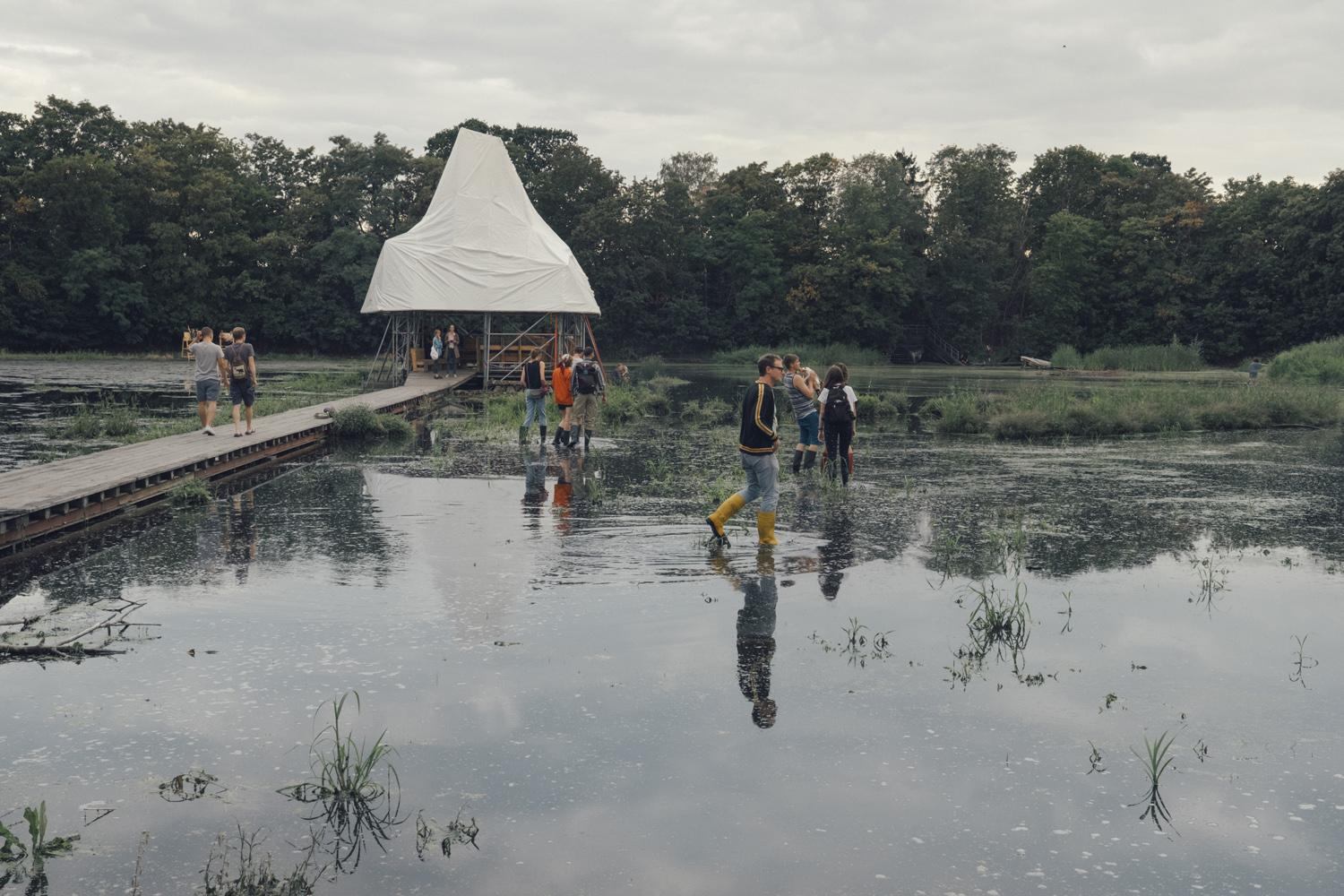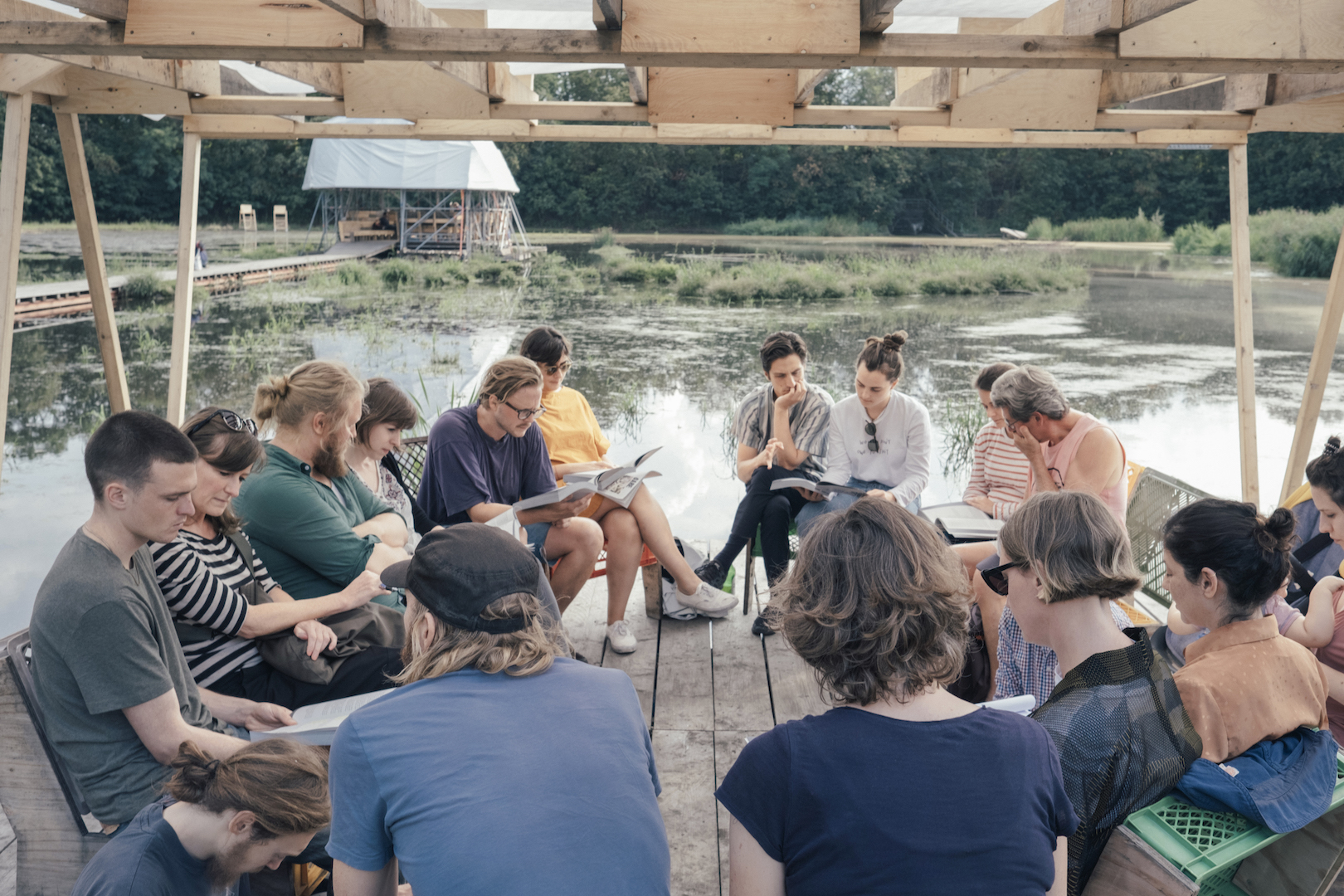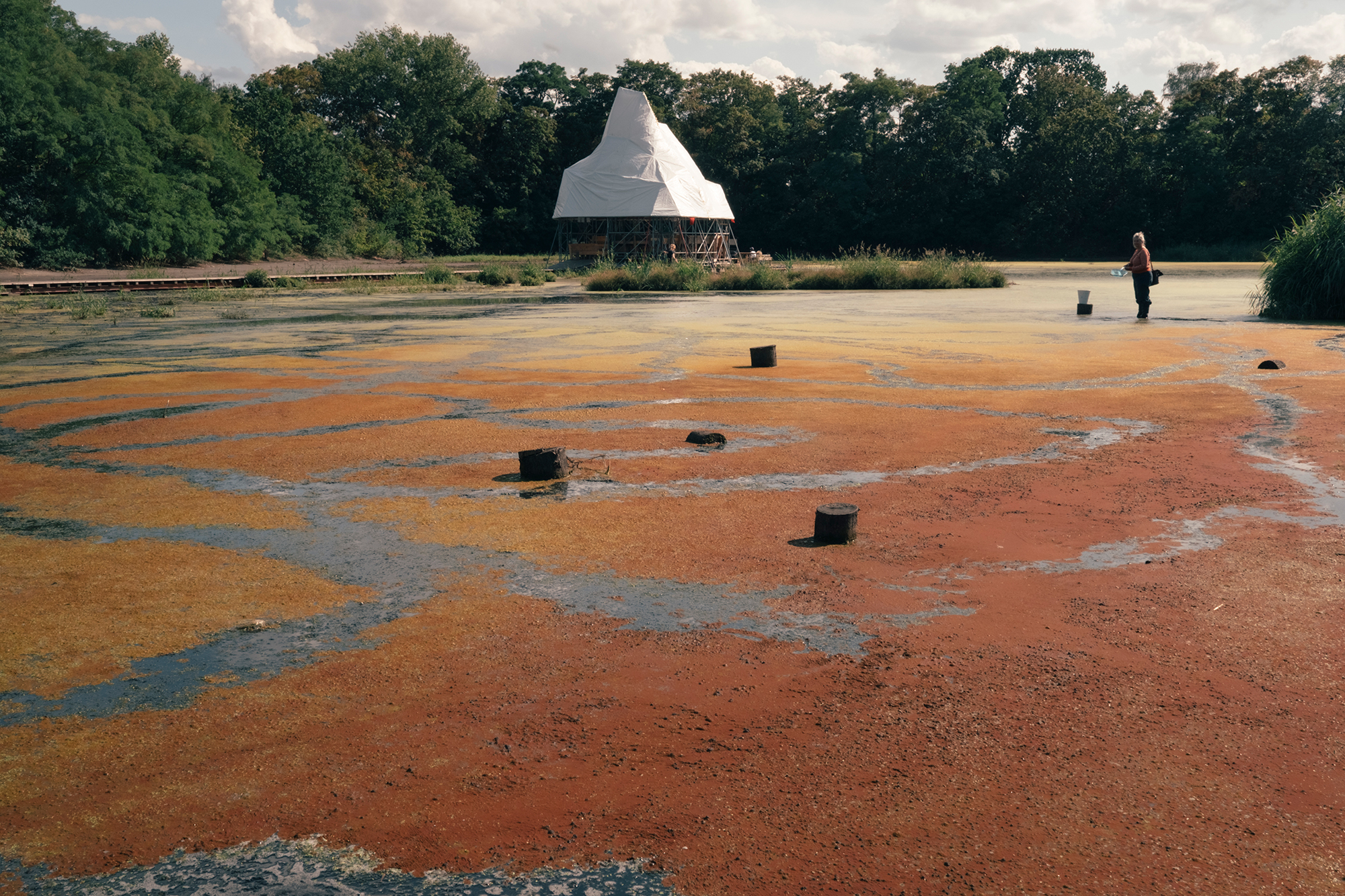FLOATING e.V.
Executive Board: Sarah Bovelett, Silja Teresa Huppertz, Jöran Mandik, Ute Lindenbeck, Hannah Lu Verse
Mitglieder/ Members: Adriana Gahona, Alexis de Raphelis, Andrea Hofmann, Andrew Wu, Anna Kokalanova, Benjamin Foerster-Baldenius, Benjamin Frick, Benoît Verjat, Berit Fischer, Camilla Bausch, Carla Kienz, Carmen Staiano Christof Mayer, Coco Wiss, David Morsi, Dorothee Halbrock, Eliza Chojnacka, Erika Mayr, Felix Wierschbitzki, Florian Foerster, Florian Kurzenberger, Florian Stirnemann, Franzisko Matthis, Garance Maurer, Gilly Karjevsky, Gülsüm Güler, Hannah Lu Verse, Inci Güler, Jade Dreyfuss, Jeanne Astrup-Chauvaux, Joanne Pouzenc, Jöran Mandik, Katherine Ball, Katja Szymczak, Kristin Lazarova, Laura Raber, Leonard Struebin, Lorène Blanche Goesele, Lorenz Kuschnig Leford, Maddalena Pornaro, Markus Bader, Martin Kaltwasser †, Martina Kolarek, Mauricio Corbalan, Nina Peters, Raul Walch, Roman Karrer, Ronja Schratzenstaller, Rosario Talevi, Sabine Zahn, Sarah Bovelett, Serena Abbondanza, Sophia Tabatadze, Stefan Klopfer, Stefan Kreft, Silja Teresa Huppertz, Tobias Florek, Ute Lindenbeck
picture in header © Lena Giovanazzi
more Floating University:
Floating e.V. is a self organized association.
Their website can be found here: https://floating-berlin.org
With this post we present some of the activities of the association. The association is pluralistic and diverse and the activities highlighted here are merely a snapshot. This article was written in 2020 – we keep it up as a stepping stone for those researching the evolution of Floating from a project into a practice, from a temporary being into a long term commons.
The Floating association emerged from the raumlabor project Floating University Berlin, which was initiated in 2018 as a temporary inner-city laboratory for collective, experiential learning and transdisciplinary exchange. For the article on Floating University 2018, please see this page.
The founding year of the Floating University saw a diverse breadth of visitors involved to varying degrees with the activity on site, creating a unique ecosystem. The program consolidated a network of practitioners, who towards the end of 2018 decided to continue the experiment by transitioning from a ‘temporary’ project into an independent association: Floating University e.V.
Floating e.V. ist ein eigenständiger Verein.
Die Webseite des Floating e.V. findet ihr hier: https://floating-berlin.org
Dieser Post präsentiert einige Aktivitäten des Vereins. Der Floating e.V. ist pluralistisch und divers und daher sind die hier hervorgehobenen Aktivitäten nur ein kleiner Schnappschuss. Dieser Artikel ist von 2020 – wir erhalten ihn hier als Sprungbrett für diejenigen, die über die Entwicklung der Floating vom Projekt zur Praxis, vom temporären Wesen zu einem langfristigen Gemeingut forschen.
Der Floating e.V. ist hervorgegangen aus einem raumlabor Projekt, der Floating University Berlin. Diese wurde zusammen mit vielen anderen 2018 als temporäres innerstädtisches Labor für kollektives, erfahrungsorientiertes Lernen und transdisziplinären Austausch initiiert und aufgebaut. Die Projektseite der Floating University 2018 findest du hier.
Das Anfang der 1930er Jahre als Regenrückhaltebecken konzipierte Gelände diente dem Flugplatz Tempelhof und den angrenzenden Straßen und ist bis heute eine voll funktionsfähige innerstädtische Infrastruktur. Nachdem es über 60 Jahre lang der Öffentlichkeit unzugänglich war, hat eine Vielzahl von Tieren, Pflanzen und Algen Wurzeln geschlagen und eine einzigartige Landschaft geschaffen: eine vom Menschen geschaffene und von der Natur zurückgewonnene Umgebung, in der verschmutztes Wasser mit der relativ neuen Präsenz des pädagogischen Experiments koexistiert und eine Naturkultur oder eine dritte Landschaft bildet.
Nach der Schließung des Flughafens Tempelhof im Jahr 2008 schlug der Stadtentwicklungsplan der Stadt Berlin vor, das Becken zu verlegen und als Teich innerhalb des 300 Hektar großen, verbleibenden Parkgeländes einzubauen. Beim Tempelhof-Volksentscheid 2014 stimmten die Berliner*innen jedoch gegen die Pläne der Stadt und verhinderten jede Art von Bebauung auf dem Flugfeld. Das Ergebnis dieses Referendums schützte nicht nur die einzigartige innerstädtische Grünfläche, sondern auch das Becken.
Im Gründungsjahr der Floating University war eine Vielzahl von Besucher*innen in unterschiedlichem Maße an den Aktivitäten vor Ort beteiligt, wodurch ein einzigartiges Ökosystem entstand. Das Programm festigte ein Netzwerk von Akteur*innen, die sich entschlossen, das Experiment gegen Ende 2018 fortzusetzen, indem sie von einem „temporären“ Projekt in eine Vereinigung übergingen: Der Floating University e.V.
In Solidarität mit der Geschichte des Ortes und mit der Verbindung alternativer Erzählungen für die Stadtentwicklung situiert der Floating e.V. seine Mission: die Öffnung, Erhaltung und Pflege dieses einzigartigen Ortes, indem er nicht-disziplinäre, radikale und gemeinschaftliche öffentliche Programme anbietet. Mit anderen Worten: ein Ort, an dem man lernt, zu handeln, sich der Komplexität und der Verstrickungen der Welt anzunehmen und zu durchschauen und sich andere Lebensformen vorzustellen und zu schaffen.
Die hier beschriebenen Aktivitäten des Floating e.V. werden hier nur redaktionell vorgestellt, die Autor*innenschaft ist pluralistisch und divers.
Einige Menschen sind Mitglieder des Floating e.V. und vom raumlabor, sie arbeiten im Floating e.V. zum Beispiel in der Lobby Gruppe, in der Learnscapes Gruppe, an Selbstorgansation und Programmierung mit.
In 2018, Floating University Berlin was initiated by raumlabor as a temporary inner-city laboratory for collective, experiential learning and transdisciplinary exchange. The site was designed in the early 1930s as a rainwater retention basin to serve the Tempelhof airfield and its adjacent streets. And it remains a fully functioning infrastructure to this day. Having been closed off to the public for over 60 years, a diverse range of animals, plants and algae have taken root and given birth to a unique landscape: a man-made environment reclaimed by nature, where polluted water coexists with the relatively new presence of this pedagogical experiment, forming a natureculture or a third landscape.
After the Tempelhof airport closed down in 2008, the city’s redevelopment plan proposed to relocate the basin into the 300 hectares of parkland in the form of a pond, surrounded by new development. However, in the Tempelhof referendum of 2014, Berliners voted against the city plans and prevented any kind of construction on the airfield. The result of this referendum not only protected the unique inner-city green space, but also provided protection for the basin.
It is in solidarity with the history of the place and with the lineage of alternative narratives for urban development that the Floating e.V. situates its mission: to open, maintain, and take care of this unique site while bringing non-disciplinary, radical, and collaborative programs to the public. In other words, it is a place to learn to engage, to embrace the complexity and navigate the entanglements of the world, to imagine and create different forms of living.
The activities of Floating e.v. described here are presented editorially, the authorship is pluralistic and diverse.
Some people are members of Floating e.v. and raumlabor, they work for example for the Floating e.V. in the lobby group, in the Learnscapes group, on self-organization and on programming.
In der Konstellation des neu gegründeten Vereins ist im Jahr 2019 einiges passiert.
Monatlich hieß der Verein die Öffentlichkeit im Rahmen des Floating Thursdays im Rückhaltebecken willkommen.
Das Programm, organisiert von Vereinsmitgliedern, bestand aus Performances, Gesprächen, Bewegungspraktiken, Vorlesungen, Filmaufführungen, Konzerten und Workshops, mit einem besonderen Fokus auf den Bezug zur Nachbarschaft. So wurden vor allem Berliner Gruppen eingeladen das Programm zu gestalten.
A lot happened in 2019, within the set-up of the newly founded association. The public was welcomed into the rainwater retention basin monthly as part of Floating Thursdays.
The program, organized by the association’s members, was made up of performances, conversations, movement practices, readings, film screenings, concerts and workshops, all with a focus on relating back to the neighborhood. To keep with this neighborhood focus, the groups invited to shape the program were predominantly Berlin-based.
Im Sommer veranstaltete der Floating e.V. das 10-tägige Festival Climate Care. Das Format, kuratiert von Rosario Talevi und Gilly Karjevsky thematisiert die Auseinandersetzung mit Ethiken und Praktiken der (Für-)Sorge, Care, im ökologischen Kontext. Der Care-Begriff (Erhalten, Unterstützen) hat zuletzt eine Erweiterung auf die mehr-als-menschliche Umwelt erfahren und umfasst mit María Puig de la Bellacasa nun “everything that is done to maintain, continue, and repair ‘the world’ so that all can live in it as well as possible” (Matters of Care, 2017). Wandelnde Klimabedingungen und hydrologische Zyklen erfordern neue Wege der Kooperation. Care erlaubt diese Transformationen fein aufgelöst zu betrachten. Care betrachtet zwischenmenschliches und Beziehungen zum Klima, über die Krisenrhetorik hinaus. Es ging um Formen der Verantwortung die wir im Bezug auf unser Klima übernehmen können. Zusammenhänge zwischen Umwelt, urbane Praxis und Bildung wurden untersucht und Lernpläne für klimapolitische Herausforderungen entwickelt. Climate Care bettete die positive Haltung des Care Diskurses in Klimathemen ein und befasste sich nicht nur mit Umweltfragen, sondern auch mit den verstrickten sozialen, politischen und wirtschaftlichen Klimazonen, die uns heute umgeben.
Das Climate Care Festival wurde in einem wunderschönen digitalen Archiv verewigt, das für den Floating e.V. von ATLAS/STUDIO (Lucía Alonso & Ernesto Bauer) konzipiert und von Lucas Pose programmiert wurde. Die grafische Gestaltung stammt von Roman Karrer. Hier wurden die Aktivitäten, die das Becken bespielten, in Form von Bildern, Videos und Textdokumentationen archiviert.
During summer the Floating e.V. ran the 10-day Climate Care Festival. The format, curated by Rosario Talevi and Gilly Karjevsky, addresses the debate around the ethics and practices of care, in an ecological context. The definition of care (to preserve, to support) has recently been expanded into the beyond-the-human environment and now includes as María Puig de la Bellacasa defines“everything that is done to maintain, continue, and repair ‘the world’ so that all can live in it as well as possible” (Matters of Care, 2017). Climate Change and changing hydrological cycles require new forms of cooperation. Care enables us to analyze this transformation in fine detail, it looks at the inter-personal relationships and the relationships to climate beyond the crisis rhetoric. It was about forms of responsibility which we could assume in connection our climate. Climate Care explored correlations between environment, urban practice and education by devising a program for climate challenges. Climate Care brings the affirmative attitude of care discourse into climate topics, tackling not only environmental issues, but caring for the entangled social, political and economical climates that surrounds us today.
The Climate Care Festival was preserved in a beautiful digital archive, which was envisioned for the Floating e.V. by ATLAS/STUDIO and programmed by Lucas Pose. The graphic design is by Roman Karrer. The activities, which resided in the basin are archived in form of pictures, videos and text documentations.
Für das Jahr 2020 war eine Weiterführung des Climate Care Formates und der Open Thursdays geplant. Dies ist bis auf weiteres aufgrund der Corona Krise gestrichen. Doch falls sich die Situation ändert, werden die Aktivitäten gerne wieder aufgenommen. Alle aktuellen Informationen findet ihr auf der Floating Website oder über unseren Floating Newsletter.
For 2020 a contiuation of the Climate Care Format and the Open Thursdays was planned. This has been put on hold until further notice due to the Cororna Crisis. But if the situation changes, then we will happily re-commence our activities. All relevant and up-to-date information can be found on the Floating Website or via the Floating Newsletter.
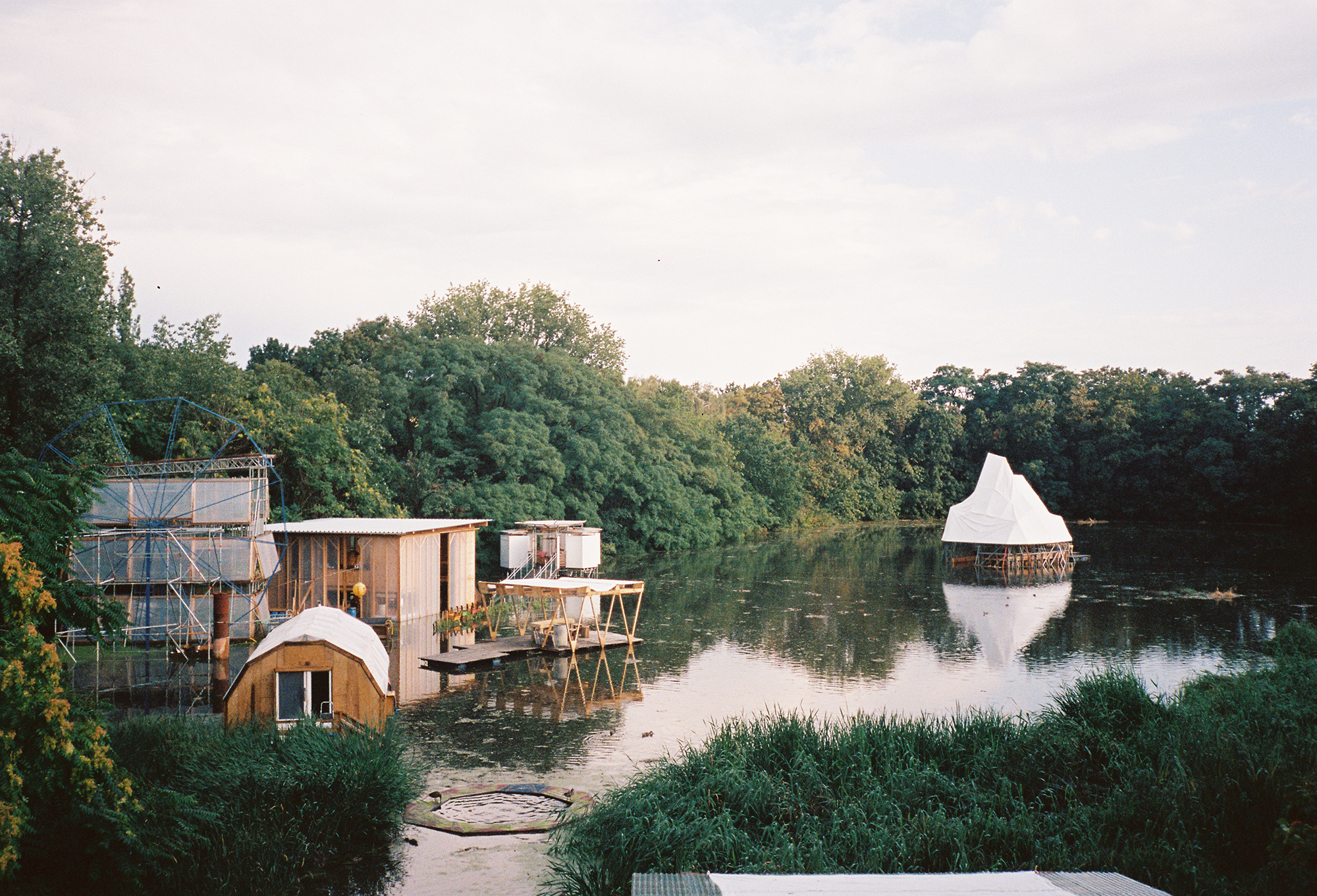 2019 © Jean-Marie Dhur, Zabrieski Buchladen
2019 © Jean-Marie Dhur, Zabrieski Buchladen
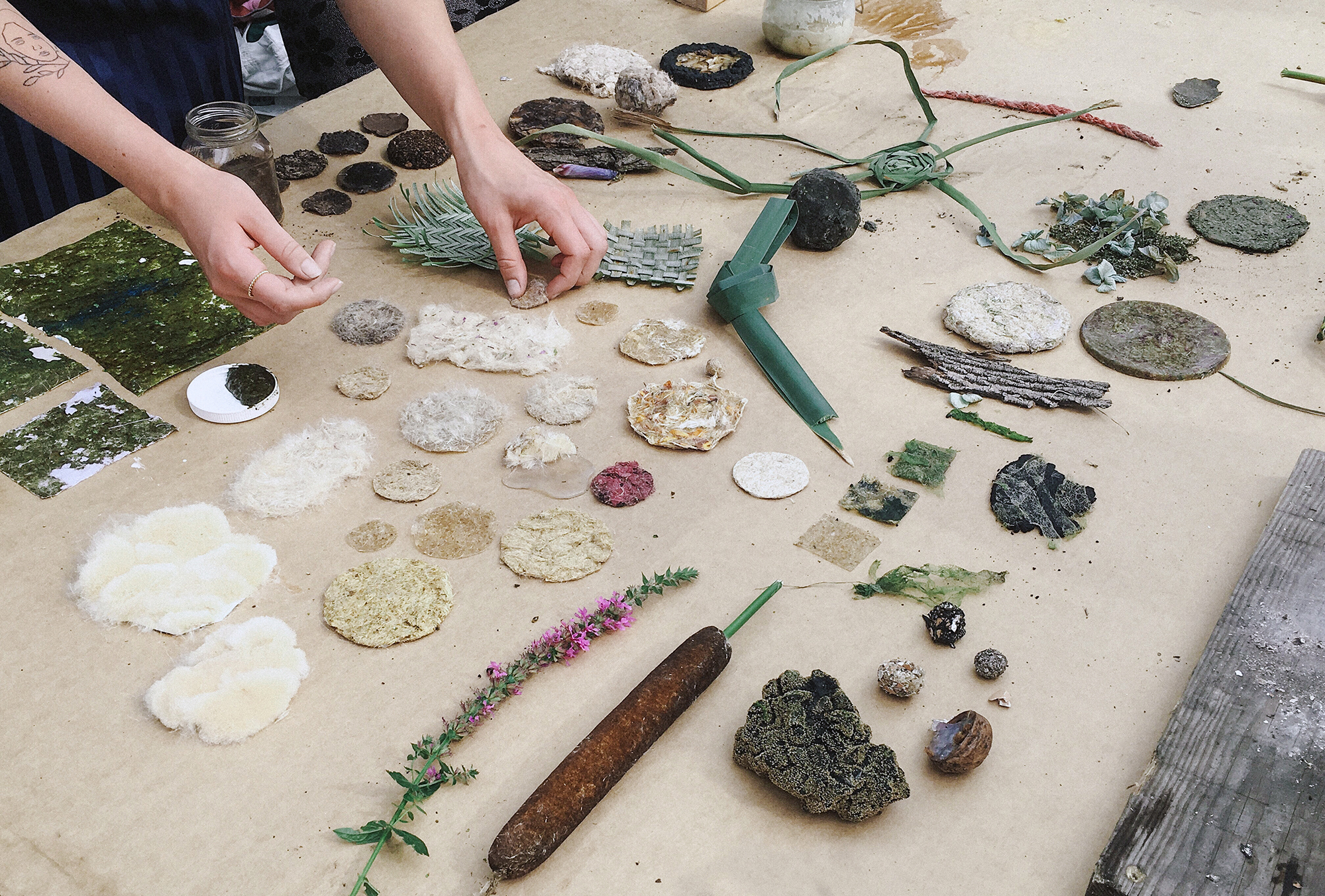 2019 © Evey Kvong
2019 © Evey Kvong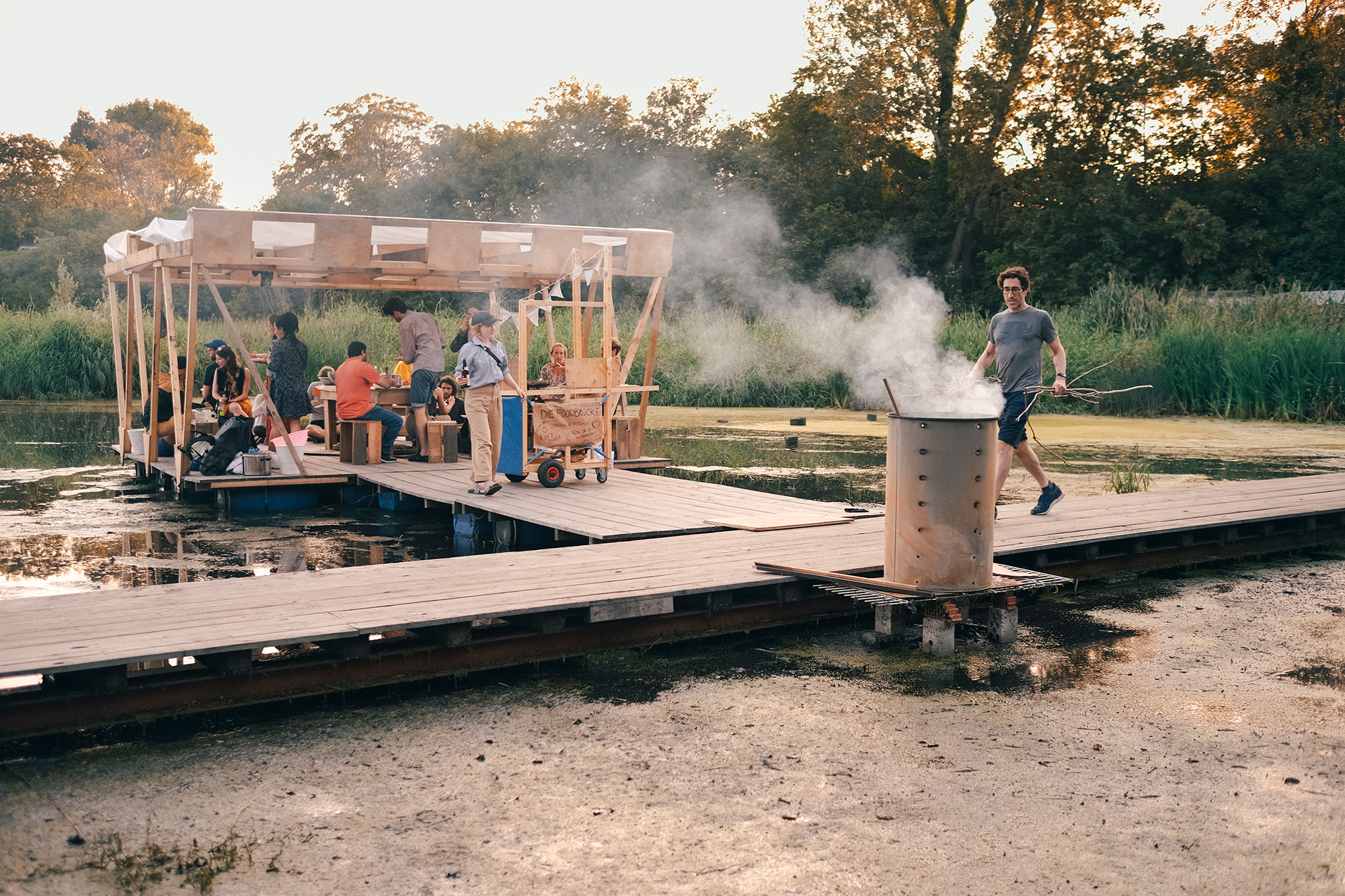 2019 © Lena Giovanazzi
2019 © Lena Giovanazzi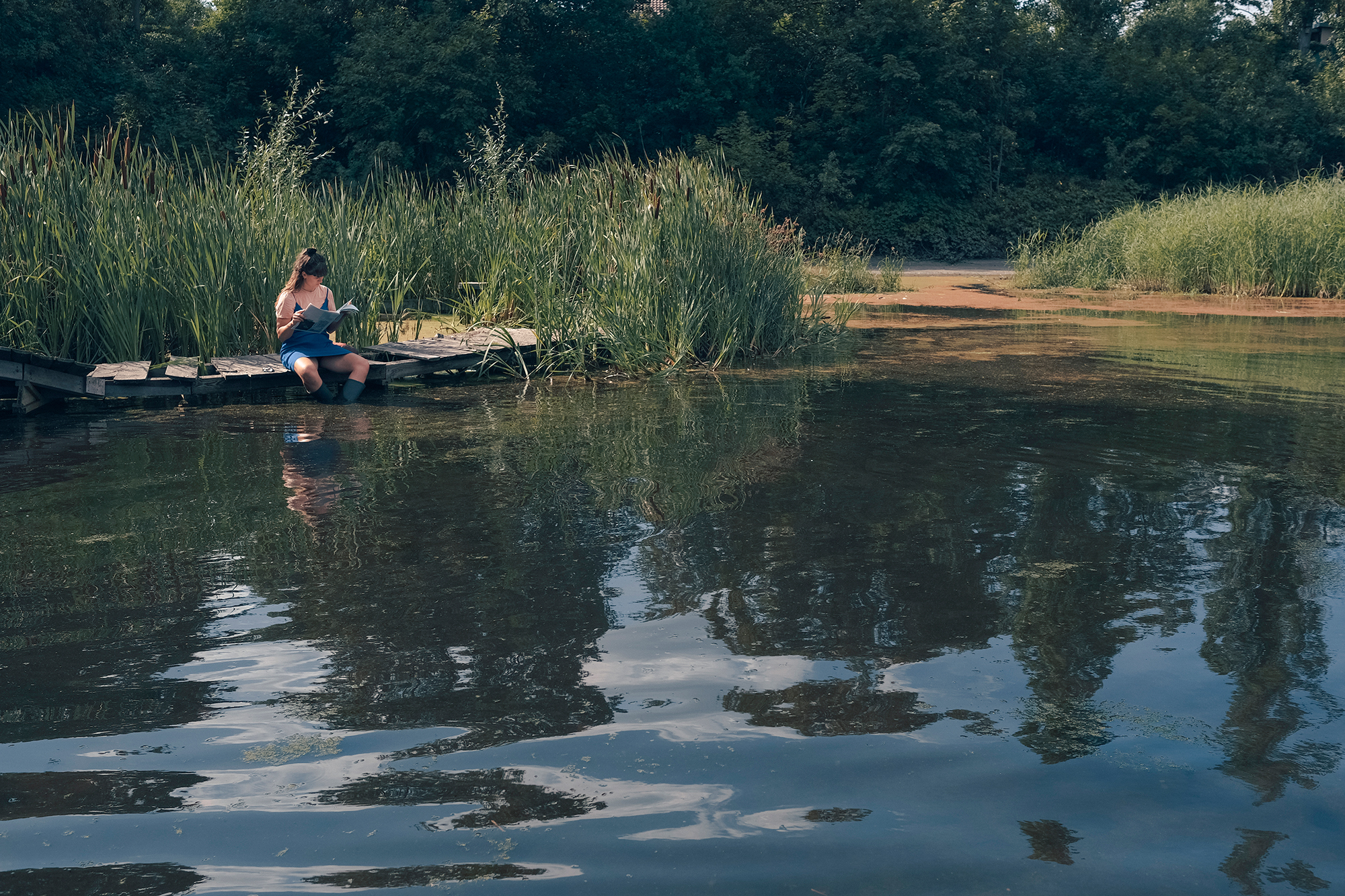 2019 © Lena Giovanazzi
2019 © Lena Giovanazzi
